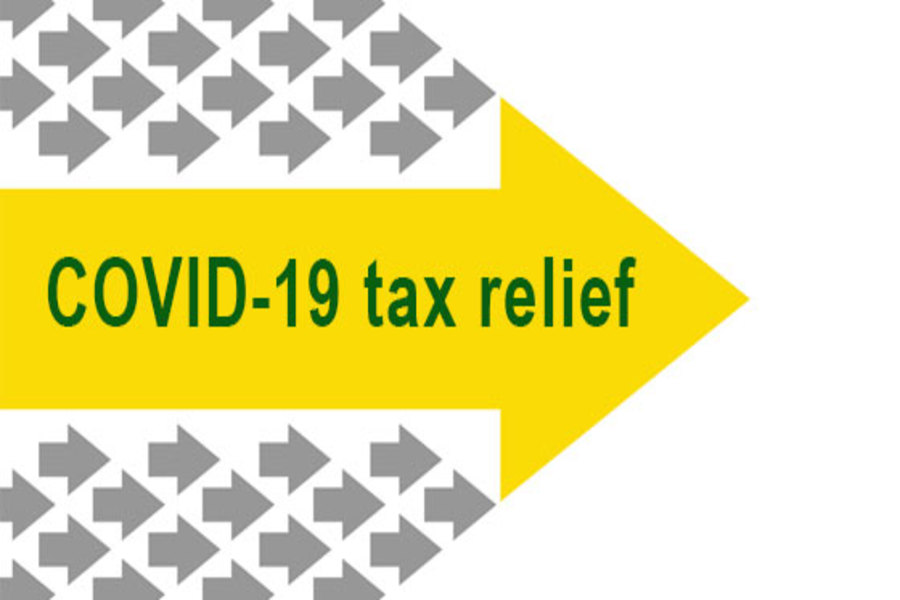The Coronavirus Aid, Relief, and Economic Security (CARES) Act signed by President Trump on 3/27/2020 provides a variety of tax and financial relief measures to help Americans during the Coronavirus (COVID-19) pandemic. This post explains some of the CARES Act tax relief for individuals. Individual cash payments Under the new law, an eligible individual will receive a cash payment equal to the sum of: $1,200 ($2,400 for eligible married couples filing jointly) plus $500 for each qualifying child. Eligibility is based on adjusted gross income (AGI). Individuals who have no income, as well as those whose income comes entirely from Social Security benefits, are also eligible for the payment. The AGI thresholds will be based on 2019 tax returns, or 2018 returns if you haven’t yet filed your 2019...

On 3/27/20, President Trump signed into law another coronavirus (COVID-19) law. The CARES Act provides more tax relief for businesses employers. Here are some of the tax-related provisions in the Coronavirus Aid, Relief, and Economic Security Act. Employee retention credit The new law provides a refundable payroll tax credit for 50% of wages paid by eligible employers to certain employees during the COVID-19 crisis. Employer eligibility. The credit is available to employers with operations that have been fully or partially suspended as a result of a government order limiting commerce, travel or group meetings. The credit is also provided to employers that have experienced a greater than 50% reduction in quarterly receipts, measured on a year-over-year basis. The credit isn’t available to employers receiving Small Business Interruption Loans under...
(This is Blog Post #774)...
The IRS and Congress have responded with some Coronavirus tax relief for individuals. Taxpayers now have more time to file their tax returns and pay any tax owed because of the coronavirus (COVID-19) pandemic. The Treasury Department and IRS announced that the federal income tax filing due date is automatically extended from April 15, 2020, to July 15, 2020. Taxpayers can also defer making federal income tax payments, which are due on April 15, 2020, until July 15, 2020, without penalties and interest, regardless of the amount they owe. This deferment applies to all taxpayers, including individuals, trusts and estates, corporations and other non-corporate tax filers as well as those who pay self-employment tax. They can also defer their initial quarterly estimated federal income tax payments...
Businesses across the country are being affected by the worldwide pandemic. Fortunately, Congress recently passed Coronavirus tax relief for small businesses. In a separate development, the IRS has issued guidance allowing taxpayers to defer any amount of federal income tax payments due on April 15, 2020, until July 15, 2020, without penalties or interest. New law On March 18, the Senate passed the House's Coronavirus bill, the Families First Coronavirus Response Act. President Trump signed the bill that day. It includes: Paid leave benefits to employees, Tax credits for employers and self-employed taxpayers, and FICA tax relief for employers. Tax filing and payment extension In Notice 2020-18, the IRS provides relief for taxpayers with a federal income tax payment due April 15, 2020. The due date for making federal income...
(This is Blog Post #768)...
It’s bad enough that the living have to worry about identity theft. But criminals also exploit the deceased with “ghosting” schemes. These thieves are stealing the identities of the dead to open credit card and service accounts and obtain loans and tax refunds. Here’s how to prevent fraudsters from taking advantage of your family. Stealing the identities of the dead: window of opportunity Months may elapse between the time a person dies and when financial institutions, credit bureaus and government entities update their records. This provides fraudsters with a big window of opportunity. Making identity theft even easier is the fact that victims aren’t around to monitor their finances and grieving families are often occupied with other matters. It can take as long as 60 days for a...
As posted to the Peak Prosperity YouTube Channel on 3/9/2020 (Run Time: 49 min, 14 sec) Author's Description of Clip "For years, Peak Prosperity has been raising a loud warning of the 'Everything Bubble' that the world's central banks have blown in global asset prices. Over that time, we've debated with hundreds of economic experts on what will be the trigger to "pop" this mania. Well, now we're finding out. The economic damage being wrought worldwide by the Coronavirus is the black swan the system never saw coming. Trade is being strangled, and the necessary productivity needed to support that massive increase in global debt that has been taken on over the past decade is just not there. Bankruptcies are set to ripple across industries like wildfire. Mass layoffs...
“All complaints will be swiftly and thoroughly investigated.” No doubt this sentence, or something similar, appears in your company’s employee handbook. Unfortunately, there will likely be a time when you’ll have to put those words into action. Whether an employee alleges discrimination or harassment, or reports a coworker for theft or fraud, you’ll need to handle investigating employee complaints appropriately. Keep these five best practices in mind to avoid unnecessary legal complications: (1) Maintain confidentiality Take every precaution to keep details of the allegation private — especially the identities of the accused and the accuser. Remind managers that they need to have all conversations behind closed doors, store all meeting notes securely and speak only to those people who are necessary to the investigation. Assure workers involved in...
As posted to the GoldSilver.com YouTube Channel on 3/3/20 (Run Time: 28 min, 07 sec) Mike Maloney believes that the Fed now has no option but to print the US dollar into oblivion, find out why in this comprehensive analysis of Tuesday’s (3/3/20) market action. The Fed's rate cut, bonds, gold and silver are all discussed. (This is Blog Post #759) Michael Maloney, founder of www.GoldSilver.com is also the author of the world’s best selling book on precious metals investing. Since 2003 he has been advocating gold and silver as the ultimate means of protecting wealth from the games played by our governments and the banking sector....











